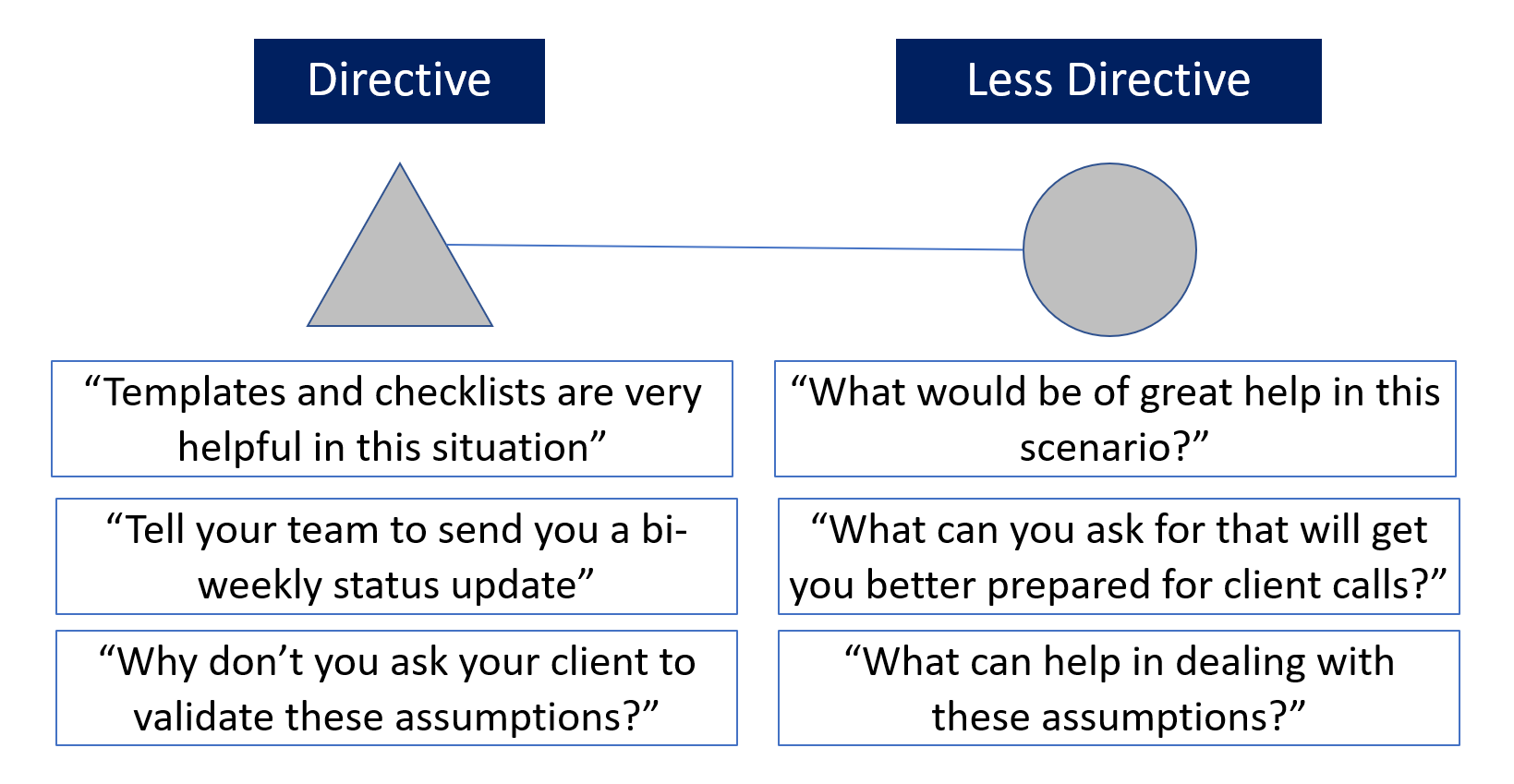
There are many ways you can support your team members’ growth and development. You can give them constructive feedback, challenge them with stretch goals, delegate new tasks to them so they learn new skills, provide them relevant training programs, enroll them in a job rotation program and mentor them when they lack the know-how to do something. There may also be times when your direct report has the necessary skills and knowledge to perform well, but for some not-so-obvious reason, does not. The reason could be a loss of motivation or a sense of helplessness or a sudden deficit of confidence or an inability to deal with change or a conflict with a leader or having to work with difficult colleagues. Their work may also suffer from habits and biases, conscious and unconscious, that hurt them and their ability to build strong trusting relationships at work. Coaching may be an appropriate way to help your team member in such instances.
Coaching is a 1-on-1 process of development that encourages learning through self-discovery rather than through teaching. Effective coaches use a structured process of coaching methods to prompt reflection, clarify and shift thinking, challenge biases and assumptions and bring to the surface any inner mental blocks. While we may find it tempting to tell our direct reports what they should do when they face a problem, a good coach finds ways to clarify the problem they are facing, challenge them and explore alternatives. They do all this by asking less directive questions and listening to understand in an open, non-judgmental environment. This approach helps the coachee arrive at answers on their own, which can build confidence and the ability to address similar problems in future.
Here are a few examples of directive and less-directive approaches to helping your team.

The skills needed to coach someone can be learned. They include the ability to build rapport, listen without being judgmental, ask effective questions, challenge assumptions and biases, give thoughtful feedback, summarize what was said and reframe the issue to bring greater clarity to the coachee.
Coaching is not easy. Leaders who are very experienced in their domain or are used to showing others the right way to do something will find it particularly difficult to play the role of a coach. Most leaders will struggle to find the time to coach their direct reports and be patient for changes that may not happen quickly. But if our job as leaders is to grow leaders, as Ross Perot, the founder of EDS and Perot Systems put it memorably, finding the time to invest in such developmental efforts will pay off handsomely. Effective coaching can bring about greater self-awareness and even the ability to learn in your coachee, both indispensable attributes of a leader.
In a future post, I shall write about the common pitfalls and obstacles that coaches can avoid to be effective.
Have you coached your team members? Can you share your thoughts on your experiences of playing the role of a coach? I look forward to hearing from you in the comments section of this page.
Very interesting article on ‘Coaching’. More often, leaders play a role of ‘Task masters’ where the rapport with team members is not very effective. By Coaching the team-members, one can build healthy professional relationship and at the same time contribute to both individual and org goals.
Never been a coach yet. Willing to learn more and eagerly awaiting the post that will explain the pitfalls, obstacles that a Coach should avoid aware of and handle well.
Thanks Ravi.